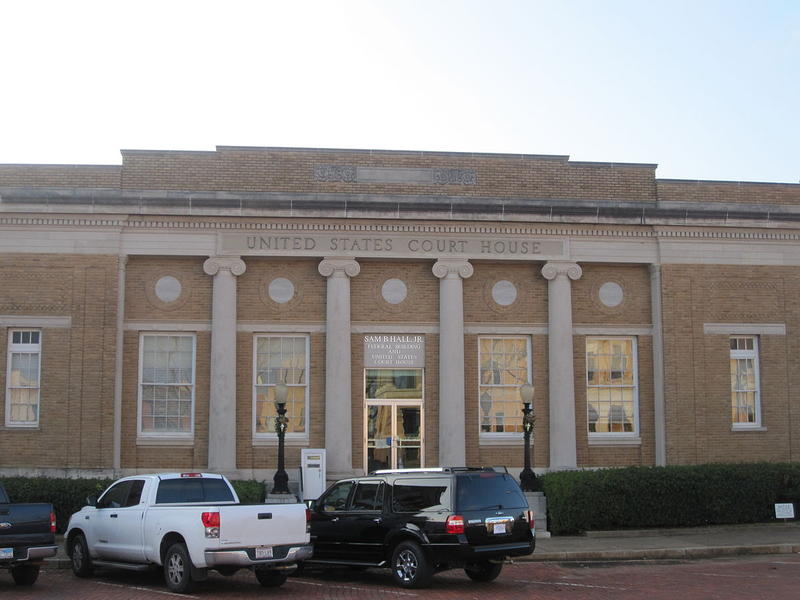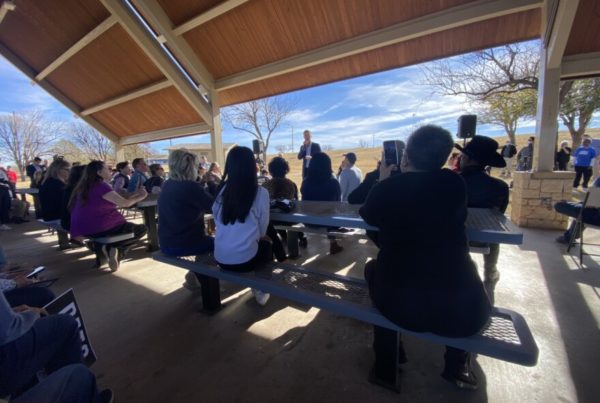More federal patent cases are filed in Texas than anywhere else. That’s because two federal courts here – one in Marshall, the other in Waco – are known to be favorable to plaintiffs.
But now, a panel that reviews rules for the federal judiciary is taking a look at the arrangement that allows courts in the state to play such a big part in patent law.
Susan Decker, a patent reporter for Bloomberg News, spoke with the Texas Standard about why these courts hear so many patent cases, and how that could change. Listen to the interview above or read the transcript below.
This transcript has been edited lightly for clarity:
Texas Standard: I understand the chief justice wants to do something about this situation here. But before we go there, tell us a little bit more about how these two jurisdictions in Texas became such a hub for patent lawsuits.
Susan Decker: Marshall’s been a hub for about two decades, and that goes back to a former judge, Judge T. John Ward, who handled patent cases before he became a judge and liked him. And when he became a judge, he kind of hung the shingle out saying, ‘Come here.’
But Waco became very big just in the past two years. And that was when a patent litigator named Alan Albright became a judge and put his shingle out. And so now, these two courts account for an outsized number of patent cases filed in the U.S.
Is there any reason a patent judge would want to have more cases in his or her jurisdiction?
I’m a little bit on a little bit biased. I will say that I think patent cases are fascinating. They involve the confluence of business and invention, so you get to hear some cool stories about technology. But Alan Albright in particular, is a former patent lawyer, and he really enjoys them. It also is excellent business for the community. For instance, rather infamously, Samsung actually built an ice skating rink in Marshall, Texas, because there were so many cases there that they wanted to subtly influence.
Let’s get to what the chief justice is calling for. What sort of changes?
He’s actually not calling for changes at this time. He’s asking that the Judicial Conference investigate and look into the fact that the way the Western District of Texas rules are, wherever you file the court case, if you file it in Waco, it stays in Waco. If you file it in Austin, it stays in Austin. There’s only one judge in Waco. So if you file a case in Waco, you’re guaranteed to get Judge Albright and the patent lawyers want him because he wants the cases. And so it’s a very discrete issue. But the tech companies see it as an opening, as a way that they can address a whole host of longstanding issues they have about so many cases being filed in Texas.
What would this mean as a practical matter for defendants and plaintiffs who often find themselves in Martial or Waco?
Well, it would be a lot fewer cases a Marshall and Waco, and those courts are seen as particularly friendly to patent owners for a host of reasons. There are certain rules on discovery and summary judgment rules – very inside baseball stuff. But they’re also known as having juries that are very friendly to patent owners. A lot of these cases would end up being sent over to California. California is considered more favorable to the tech companies. Also, California’s slower than Texas. And one of the things that the patent owners – especially what they refer to as non-practicing entities – rely on, is the speed in Texas, that they can use that to pressure the tech companies into quick settlements. And so the patent owners would have to accept lesser settlements, or they would perhaps not even bring some cases.
Is there any timeline for when reforms might happen if there are such recommendations coming down the pike?
Well, the Judicial Conference is scheduled to release its findings in May. They said that’s the timeline they’re working on. I will say that I’ve been covering patents for 20 years, and the debates over the courts in Texas and their role in patent litigation have been fought over for 20 years. So the fact that this is one of only three things the chief justice mentioned in his end-of-year report kind of elevates it much higher.
The courts want to address this themselves rather than have Congress do it. But frankly, Congress has been talking about it for two decades and hasn’t done anything either. So it’s up in the air on whether anything will happen and whether anything will change.














